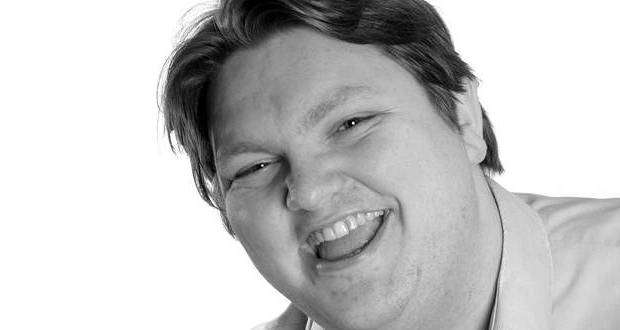Comedy, mental health, and Mackenzie Taylor
 Pictured: Mackenzie Taylor
Pictured: Mackenzie Taylor
As I was researching a feature about Women & Theatre’s Laughing for a Change project, which aims to increase awareness of mental health issues, I was reminded of what is probably my most memorable experience at the Fringe.
You don’t want another potted history of the debates surrounding mental health and comedy, and the myth that all comedians are depressive geniuses. It’s a claim that seems to be robust when you cite Tony Hancock and Kenneth Williams, but, like most generalisations about the world, can be knocked down.
Recently, Sara Pascoe challenged fresh academic research that claimed that some comedians were funny because they possessed characteristics of mental health problems, by saying that comedians are funny because they work bloody hard.
And, Susan Calman has talked about her struggle with depression in her stage and radio shows, particularly to Stuart Goldsmith for the The Comedian’s Comedian Podcast recorded last August at the Gilded Balloon.
But, all this reminds me of the most profound Fringe experience, from a comedian named Mackenzie Taylor.
In 2009, from the front row in a small room in the Pleasance Dome, my Fringe comrade, Ian, and I watched Mackenzie describe how bipolar schizoaffective disorder had affected his life and the lives of those around him.
No Straight Jacket Required was an immensely powerful show, in which he walked the tightrope of comedy and a profoundly emotive subject. He described his illness in detailed, graphic terms, whilst remembering that it was, ultimately, a comedy show.
This last point was integral to the show’s success, and one reflected by Susan Calman in her interview with Goldsmith, when she says that it’s important to remember that any discussion about mental health within a comedy show should be ultimately funny, otherwise it will put people off.
These were the years before I wrote reviews (some of us do bother to familiarise ourselves with the art before polluting the world with our negligible evaluations), so, without any notes of my own, I rely a little upon Bruce Dessau’s Guardian piece to remind me of some of the components of No Straight Jacket Required.
A notable tale, Dessau recalls, was Mackenzie’s description of how he drove to Brighton to take a potentially lethal combination of alcohol and pills, but became preoccupied about not wanting to die while his car was clamped on double yellow lines. It was this sort of detail, structured and timed so that the line got a laugh, that people who have been ‘there’ might recognise.
The intimacy was further intensified towards the end of the performance when Mackenzie revealed that his then-girlfriend, a significant ‘character’ throughout the story, was acting as an usher for him at the venue, and was standing at the back of the room. I vaguely remember collecting a badge from her; I’m not sure.
A year later, Mackenzie took part in BBC Radio Berkshire’s Warning: May Contain Nuts, which, like Laughing for a Change’s current project, aimed to raise awareness of mental health issues through comedy performance.
Fortunately, as a consequence of this project, extracts of No Straight Jacket Required have been preserved on the station’s website.
Later in 2010, Mackenzie took a show called Joy to the Fringe, which explained how his life was on the way up, following the disturbing events described in his previous show.
I didn’t see the show, but I kept an eye on the (positive) reviews, which confirmed that Taylor was indeed in a better frame of mind.
News of his fatal overdose three months later affected me. The way this made me feel seemed strange; I didn’t know him, having been merely just one audience member out of fifty, itself out of twenty-odd shows in that summer.
His performance had been so powerful and brilliantly crafted. He demystified schizophrenia in a way that we were given releases through laughter at regular intervals to prevent an awkward Fringe hour in a sweaty room.
The following sentence still seems daft, despite having drafted it in my head over three years: I feel privileged to have been in close proximity of someone with the talent to communicate these dark thoughts with devotion to the art and craft of comedy.
The extent to which I felt winded by his death is explained when I noticed his date of birth; three days after mine.
Struggling to conclude this inconsequential reflection, I’m going to borrow some words.
First, Janice Connolly, during our interview about Laughing for a Change: “It’s important we stick together.”
And, although Juno star Ellen Page was talking about homosexuality (not a mental illness, Republicans please note), the sentiment is transferable and unbeatable: “This world would be a whole lot better if we just made an effort to be less horrible to one another.”
Yep, their words are better than what I could come up with. Let’s leave it there.



































